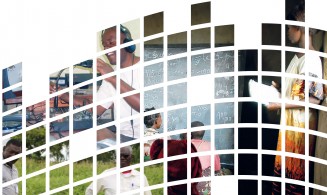

Progress and potential: Adult learning and education in Arab States
dsc_5901.jpg

Development in adult learning and education in Arab States is imperative. The Arab States’ region has made important but unequal progress in recent years. Many states are affected by political instability, which takes a high toll on education. It is estimated that 51 million adults in the region lack sufficient reading and writing skills. Every year, more and more children leave school without the skills to find a decent job.
On 7 and 8 February 2017, regional partners met in Rabat, Morocco for the launch of the third Global Report on Adult Learning and Education (GRALE III), with special focus on its findings for the Arab States. To promote ALE dialogue among Arabic speakers from the region and beyond, the report has now been published in Arabic, thanks to translation by the UNESCO Beirut Office.
In his keynote address, UIL Director Mr Arne Carlsen shared positive news from GRALE III, noting that 67 per cent of Arab States report that their ALE policies have improved significantly since 2009, while 92 per cent report that the quality of ALE is improving thanks to pre-service and in-service training for teachers. Despite this positive change, Mr Carlsen stressed that only 13 countries in the region responded to the GRALE survey and called for enhanced efforts to improve the quality of data on ALE in the region.
The meeting also highlighted three ways in which adult learning and education in Arab States can fulfil its potential. First, political leaders need to put in place more comprehensive ALE policies that cut across sectors and link more strongly to the labour market. Encouragingly, countries in the region recognize the wider benefits of ALE: 75 per cent agree that ALE has benefits for the health sector, while 88 per cent say that literacy programmes help develop democratic values.
Second, partners from civil society need more opportunities to help shape ALE policies and programmes. Participants shared experiences from Egypt and Lebanon, where civil society has played important roles in promoting social and economic empowerment for women and in training ALE facilitators.
Finally, regional and international collaboration is important. In this context, participants agreed that more countries needed to engage in the next edition of GRALE. They also supported the revision of the ALE glossary for Arab States and the creation of a new Arab Literacy Portal. Progress in these areas will be shared at the Mid-Term Review of CONFINTEA-VI, to be held in the Republic of Korea on 25–27 October 2017.
The event in Rabat was co-organised by UIL, the Islamic Educational, Scientific and Cultural Organization (ISESCO), the Regional UNESCO Office in Beirut and the UNESCO Office in Rabat.









